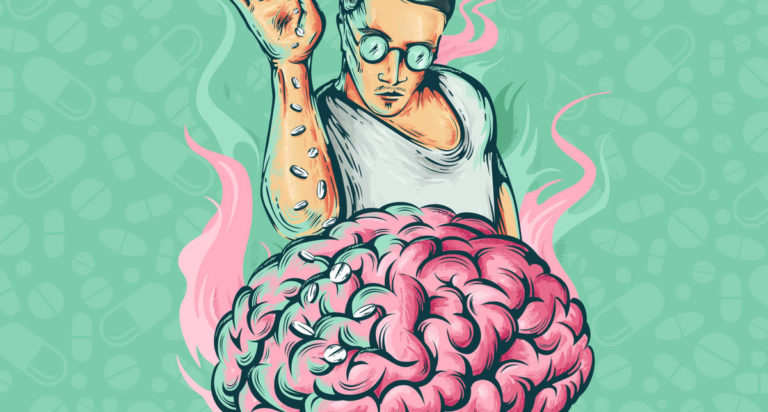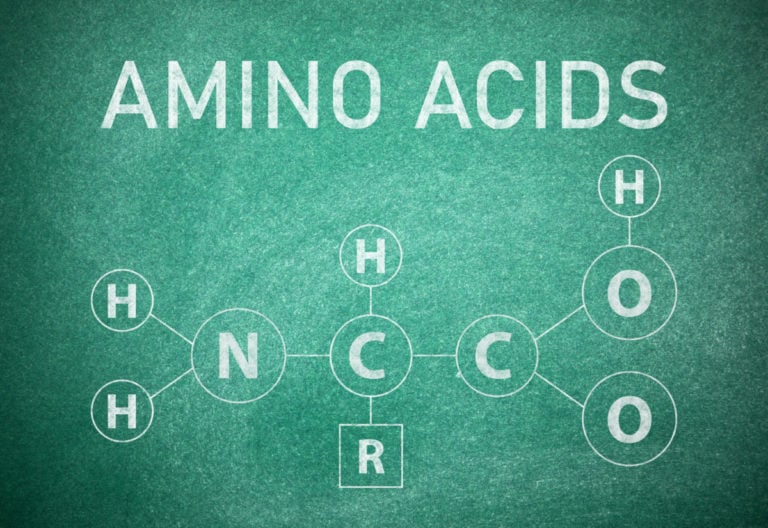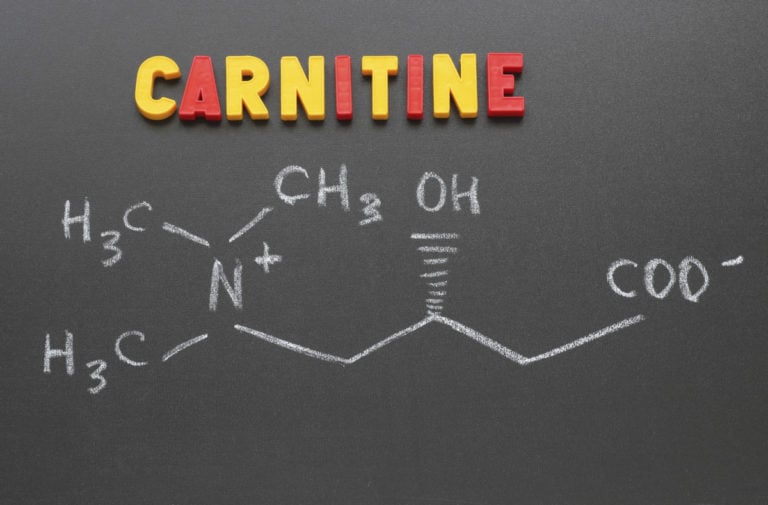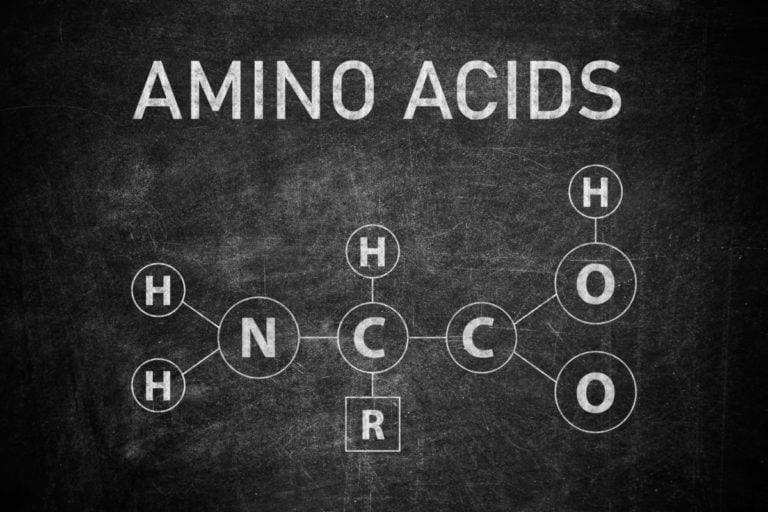What vitamins does an office worker need (this means a busy schedule, a sedentary lifestyle, little time spent walking in the fresh air, a lot of stress due to responsibility).
- A high-carbohydrate diet is failing in modern conditions
- What vitamins will help an office worker stay in shape?
- Nutrients to improve brain function
- Amino acids - antioxidants and fuel for the brain
- Vitamins and minerals-activators
- Prohormone-vitamin D - a new twist in the wellness plot
- Herbs, mushrooms, algae - the power of nature for an active brain
- Why not coffee?
- More than vitamins. Nootropics of the future
- Helping the intestines means helping the whole body!
- For eye protection
- Conditions without which measures to maintain the health of office employees will be in vain
With changes in technology and tools of production, the diet of a working person inevitably changes.
In the era of great restructuring and conquest, famine, high-calorie food was relevant. Wheat, corn, rice, and potatoes could feed the main population cheaply and cheerfully, but bread was everything. Grains and starchy vegetables provide quick energy and strength—ideal for physically demanding workers.
The global Internet, satellite broadcasting and digital technologies have changed the order for essential jobs. Physical activity in cities is practically impossible. In this case, the brain, eyes and hands are maximally involved.
Modern working conditions can be characterized as a long delay in one position, general physical inactivity in conditions of disrupted circadian rhythms. All this leads to an increased risk of developing cardiovascular diseases, obesity, metabolic syndrome, gastrointestinal disorders, a general decrease in muscle tone, increased anxiety, neuralgia and depression.
A high-carbohydrate diet is failing in modern conditions
Today we are witnessing a global change in food preferences. The new Z-generation of office workers and consumers, according to the international agency NIQ, considers “the feeling that I am taking care of myself” to be an important characteristic of food. This led to a food mind revolution. There is an increasing demand for food and nutritional supplements to “be healthy”.

Dietary habits do not change quickly, but today our body needs effective sources of energy in the form of vitamins in order to increase its productivity, protect itself from burnout and a state of weakness in the morning, and at the same time remain in excellent physical shape.
Mind diets come to the rescue. This is a diet aimed at improving brain function under limited movement conditions, excluding sugar, excess fructose, and high in Omega-3 fatty acids.
What vitamins will help an office worker stay in shape?
As a pharmacist and specialist immersed in the problems of neurobiology, I will share my opinion that office workers, as well as IT specialists, officials and freelancers, for a healthy metabolism, lack nutritional supplements aimed at improving brain function and enhancing microcirculation, as well as maintaining the health of the intestinal microbiota .
Main groups of mind dietary supplements:
- nutrients to improve brain function;
- vitamins and minerals-activators;
- neurobiotics;
- herbs, mushrooms, algae – the power of nature for an active brain.
Nutrients to improve brain function
According to research the vast majority of Russians, by their own admission, The basis of the diet includes cereals (85%), bakery products (85%), sunflower and butter (79%).
What our brain really needs:
- Water is clean, soft, supplied in sufficient quantity for a particular person.
- Healthy fats – polyunsaturated fatty acids, mainly Omega-3, lecithin, choline.
- Amino acids (phenylalanine, glutamine, arginine, tryptophan).
- Minerals – zinc, selenium, magnesium, lithium.
Thousands of studies, since the first publications in 1964, show the effectiveness of using Omega-3 to reduce cardio risks, restore intestinal barrier function, and create conditions for the normal functioning of the intestinal microbiota.
Lecithin and choline are important structural components of the membranes of all cells of the body, including the brain, liver, cardiovascular system, and intestinal epithelium. Fat-like substances represented by a complex of phospholipids provide electrical transmission of impulses along nerve fibers.
Lecithin is a general strengthening agent for maintaining normal brain function under increased psycho-emotional stress. Provides protection to cerebral and coronary vessels from atherosclerosis, is a building material for the restoration of myelin sheaths, nerve fibers and roots. With a deficiency of phospholipids, memory deteriorates, performance, speed of reactions and concentration of attention decrease.
Amino acids – antioxidants and fuel for the brain
It is important for me that my thinking remains clear, precise, and fast from early morning until evening. To do this, it is important to take into account the peculiarities of the brain structure. It is not so easy for substances to reach it directly from the general bloodstream.
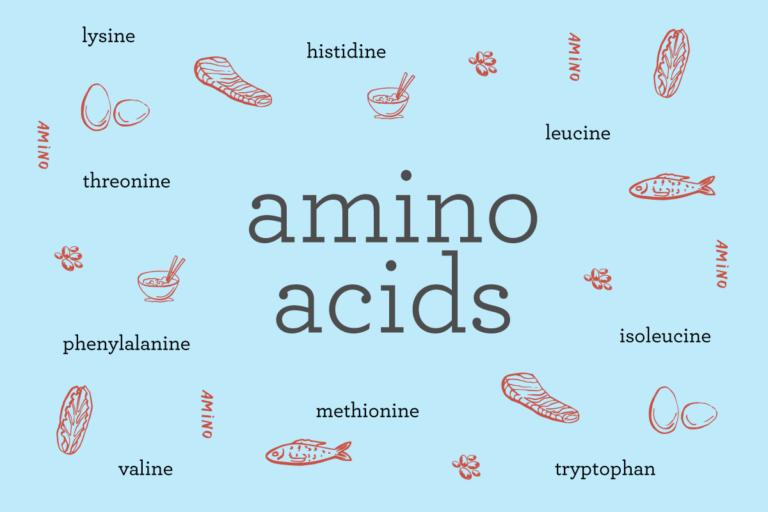
Tryptophan, glycine, glutamic acid and tyrosine are the basic amino acids that the nervous system needs.
Glutamic acid and glutamine are real fuel for our brain, increase mental alertness, and affect mood. The most important neurotransmitter, gamma-aminobutyric acid, is formed from glutamic acid. Has a calming effect on the body. It is used as a natural antidepressant.
When a sufficient amount of glycine, glutamic acid, and cysteine enters the body, the cells themselves synthesize the powerful anti-aging antioxidant glutathione. Bringing the levels of these three amino acids back to normal in humans leads to a decrease in meteosensitivity, an increase in physical activity and performance. You feel a surge of energy and stress levels decrease.
The use of protein supplements will be absolutely justified for an office worker if the composition includes the above amino acids, as well as other essential ones – phenylalanine, lysine, threonine, valine, leucine, methionine and isoleucine, phenylalanine.
Phenylalanine improves learning ability, alleviates depression, and prevents burnout. This is the basic building material of neurotransmitters, which promotes the production of dopamine and norepinephrine – responsible for mental clarity, our creativity, high spirits, motivation, and the ability to set and achieve goals.
The production of another important neurotransmitter, the happiness hormone serotonin, is triggered by the presence of the amino acid tryptophan. During the day, high concentrations of tryptophan in the blood provide a good mood, and in the evening they promote the synthesis of melatonin, a sleep hormone and a regulator of circadian rhythms throughout the body.
Synthetic amino acids do not have the high bioavailability and affinity for our cells as we would like. Therefore, it is better to use natural ingredients, such as griffonia seed extract, a plant source of natural tryptophan 5-HTP (the active form of 5-hydroxytryptophan).
Vitamins and minerals-activators

Let’s focus on the basics:
- Potassium affects the maintenance of water-salt balance and the transmission of nerve impulses in the brain. It is especially important for those who have excess salt in their food. The WHO recommended daily intake of potassium is 3510 mg for persons over 18 years of age.
- Selenium is one of the most effective antioxidant metals and is a detoxifier. Helps cleanse the body of heavy metals (lead, mercury, arsenic, cadmium), the sources of which are water, air, and seafood. Microscopic amounts of lead and mercury can impair clarity of thinking and weaken memory.
- Lithium is a vital micronutrient. It is used in microdoses and is necessary for the brain to function normally. Lithium deficiency is accompanied by increased irritability, worsening mental disorders, kidney diseases and immunodeficiency formations, and the risk of neoplasms. Lithium preparations improve higher nervous activity and have a beneficial effect on memory.
Vitamins C, E, A (retinol) and folic acid ensure active energy exchange and restoration of cell membranes.
Vitamin B1 (thiamine) binds free radicals, promotes energy metabolism, activates the functions of the nervous system, normalizes the metabolic processes of converting glucose into energy, and counteracts the harmful effects of toxic substances that affect nerve cells.
B vitamins also include derivatives of nicotinic acid (niacin) – Vitamin B3. Niacin improves memory, protects the body from stress, improves blood flow, is used to prevent strokes and improves the ability of red blood cells to carry oxygen.
Vitamin B6 is often considered an anti-stress and neurovitamin. Without it, biochemical transformations of such important neurotransmitters as serotonin and dopamine do not occur. They ensure optimal functioning of the psyche, increase our adaptability, resistance to stress, and adequacy.
Vitamin B12 was one of the last to be discovered, although its importance puts it in first place. B12 – promotes the release of energy from food. Vitamin B12 from beef liver, fish, and poultry is practically not absorbed by some people. Therefore, it is important to deliver B12 in its active form – in the form of methyl- or acetyl-cobalamin. The main supplier of B vitamins is our own intestinal microbiota when it is healthy.
Prohormone-vitamin D – a new twist in the wellness plot

Vitamin D plays a vital role: it participates in the transcription of about 200 genes and reduces resistance to allergic inflammation of the skin, ensures the normal functioning of the thyroid gland, blood clotting factors, the sex hormonal system and reduces the risks of oncology and neurodegeneration.
When selecting an individual norm of vitamin D prohormone, it is necessary to take into account not only the level of concentration in the blood, but also the genetics of the person, as well as the level of basic nutrients – metals, coenzymes and Omega-3.
Herbs, mushrooms, algae – the power of nature for an active brain
Some researchers associate the active development of the human brain with the active consumption of ginkgo biloba leaves. The extract improves memory, thinking, logic, general mental activity, cerebral circulation, increases energy and brain metabolism of the whole body.
Ginkgo biloba is an antioxidant, is able to bind free radicals and facilitates the transmission of nerve signals, accelerates the flow of oxygen through the body and brain, increases the formation of ATP – adenosine triphosphate, and protects the arteries and capillaries of the brain from blockage of microthrombi. It also helps to increase the speed of transmission of nerve signals, improves the synthesis and turnover of the neurotransmitters serotonin, dopamine, norepinephrine.
Why not coffee?
We feel the effect of a surge of energy because caffeine binds to adenosine receptors. Adenosine is a sleepiness signaling molecule, a biological controller of natural rest time. Caffeine and theobromine turn off the physiological signal of fatigue and brain cells stop hearing/feeling accumulated adenosine and the person does not want to sleep. That is, coffee makes the brain not productive, but stunned.
Real brain activators, without negative effects, have long been known to medicine. Extracts of guta kola, ginkgo biloba plants and a common polyphenol in nature – dihydroquercetin. Dietary supplements based on these components enhance microcirculation, improve the condition of the cardiovascular system and cerebral circulation, lower blood pressure, and improve all metabolic processes in the body.
Dehydroquercetin in the international scientific literature is classified as a systemic neuroprotector substance that protects brain cells, including those associated with abnormal accumulation of beta amyloid in the brain, one of the causes of Alzheimer’s disease. Protective properties associated with preventing the formation of accumulations of harmful proteins and stagnation of glymph.
More than vitamins. Nootropics of the future

Gericenon and erinacin – substances isolated from the mushroom help maintain neuroplasticity of the brain. This occurs due to the stimulating effect on nerve growth factor – NGF and brain-derived neurotrophic factor – BDNF, substances that are permeable to the blood-brain barrier. It has been noted that the use of dried blackberry mushroom powder reduces emotional tension and anxiety.
Blackberry mushroom mycelia do not contain psychostimulating components and do not overstimulate the nervous system. On the contrary, they have a beneficial effect on a person’s circadian rhythms, promote timely falling asleep with improved quality and depth of sleep. The fungus exhibits antibacterial activity against opportunistic bacteria.
In addition to neurotrophic bioactive components, mushrooms contain polysaccharides, which become a substrate for the growth and development of beneficial intestinal microflora – these are already probiotic properties. The barrier function of the entire digestive tract improves.
For those who find it difficult to maintain a balanced diet and want to eat all the time, microalgae are simply irreplaceable. Taking the recommended daily dose with enough water due to the swelling of polysaccharides reduces appetite and at the same time fills the body with nutrients. They are excellent support for the intestinal microbiota. Algae relieve inflammation in the intestines, excess gas formation, strengthen barrier functions and reduce the negative impact of stress on the adrenal glands and hypothalamus.
Helping the intestines means helping the whole body!

The 40 trillion microorganisms within us are active participants in shaping our physical and mental health. A mutually directed connection between the brain and intestines has been proven. The gut-brain axis regulates (communicates) through the endocrine, nervous, immune systems and nonspecific immune factors.
The intestines should work lightly. Among dietary supplements aimed at improving the health of the office population, it is important to include choleretic components based on herbal extracts, plant enzymes, prebiotics and probiotic cultures.
Prebiotics are usually called substrates and foods that may not be as tasty, but create conditions for the growth of bifidobacteria and lactobacilli. A universal prebiotic fiber for use in encapsulated form is psyllium (plantain husk). Let me also remind you of the prebiotic activity of microalgae chlorella, spirulina and polysaccharides of hedgehog mycelium.
For eye protection
Vitamins for relieving eye fatigue and maintaining visual acuity include almost all the bioactive substances covered in the article: vitamin complexes with carotenoids, group B, Omega-3, amino acids and phospholipids.
However, there are also specific antioxidants that act as a light filter – lutein, zeaxanthin, complex blueberry extract. They protect the retina and lens from the effects of reactive oxygen species, free radicals, and are a natural blocker of blue rays of the blue and cyan spectrum.
Don’t forget about additional shielding of your computer monitor, tablets, smartphones and regular simple eye exercises.
Conditions without which measures to maintain the health of office employees will be in vain
In order for an office worker to be healthy, it is important, along with the introduction of subsidies for vitamin health dietary supplements, to eliminate easy access to pro-inflammatory products and factors that slow down metabolic processes in the body:
- excessive consumption of coffee, strong tea and availability of caffeine in the afternoon;
- lack of blue and white light filters on monitor screens; Excessive white light;
- unbalanced set meals high in saturated fat, fried foods, lots of baked goods and light carbohydrates;
- easy access to fast food snacks.
Modern technologies make it possible to promote the development of healthy eating habits among employees at the lowest cost.

